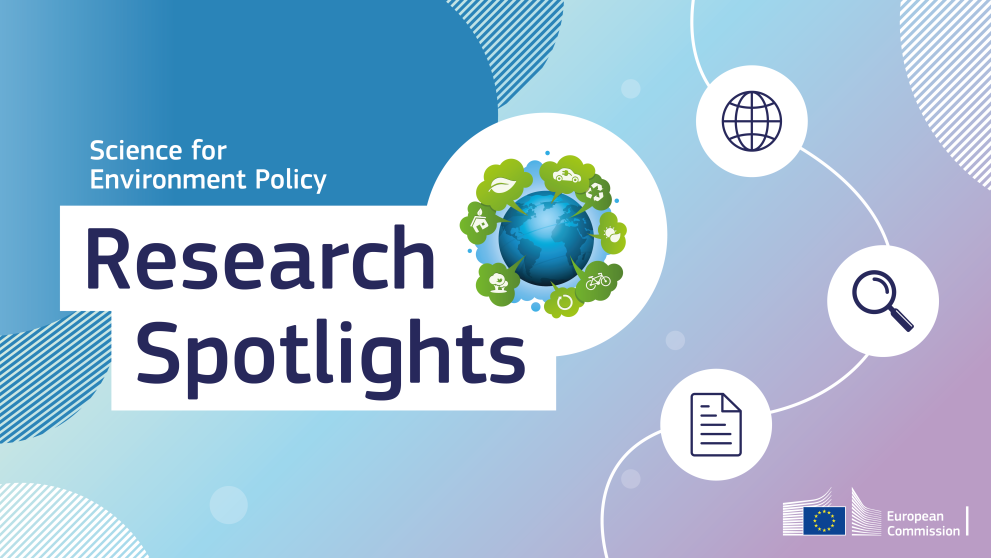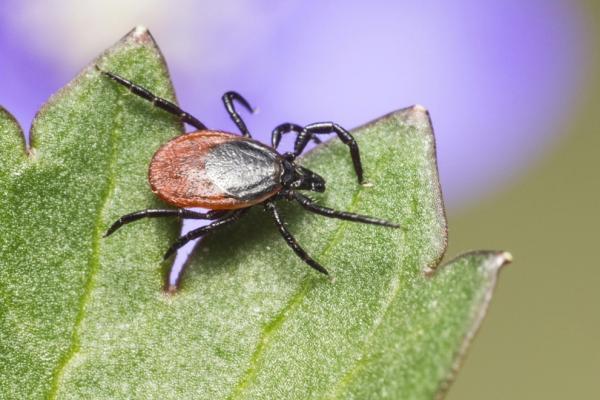Science for Environment Policy (SfEP) is a free news and information service published by the Directorate-General for Environment (DG ENV) of the European Commission. It is designed to help busy policymakers keep up-to-date with the latest environmental research findings needed to design, implement and regulate effective policies.
Our News alert articles, Research Spotlights, and Future Briefs are freely accessible through this site. To access SfEP content published between 2005 and June 2022, please consult the dedicated archive.
News Alerts
The bi-weekly News Alerts are a cornerstone of the SfEP service. Presented in concise and easy-to-understand newsletter articles, SfEP brings the latest updates on key environmental research right into your inbox.
Research Spotlights

Research Spotlights is a carefully curated collection of other scientific papers that could be of relevance to our readers. See all Research Spotlights curated by Science for Environment Policy.
Future Briefs
SfEP also releases regular Future Briefs on the latest environmental topics, such as new technologies and innovations and their impact on the environment. Future Briefs are a series of horizon-scanning policy briefs, which explore the evidence around emerging environmental issues.
News Alerts

Tick-borne disease risks are on the rise globally, linked to changes in climate, land use and human-animal interactions. A new study maps current and future tick distributions and highlights urgent public health implications.

Increasing textile-to-textile recycling rates in the EU to 10% could achieve carbon savings of 440,000 tonnes per year, and conserve 8.8 billion cubic metres of water – making a case for a renewed focus on policies to tackle textile waste.

Despite an increase in policies, globally, to tackle the issue of farmed salmon escaping aquaculture pens, fish continue to reach oceans including the Atlantic. A new study explores the issue and how measures could be more effective.

Permanent grasslands in agricultural areas are important for biodiversity – especially pollinators. Researchers in Belgium found irregular, curved mowing patterns had positive effects on pollinators compared to conventional block cutting, and suggest promoting this approach.
Future Briefs
This Brief focusses on the lighting design adaptations and mitigation measures tailored for sensitive habitats and taxa. It also highlights ongoing efforts by local governments and communities to address Artificial Light at Night pollution (ALAN).
This Future Brief presents the current science on nanoplastics: their detection, assessment and monitoring; their impacts in the environment, ecotoxicity, and environmental fate; and their potential impacts on human health.
This brief looks at environmental factors that potentially contribute to the emergence of disease and the effects of COVID-19, and environmental impacts that have arisen from COVID-19.
Contact Us
Science for Environment Policy (SfEP) is a European Commission initiative. The secretariat is currently run by Ecorys.
For comments, questions or requests on this service, please contact us at ENV-SFEP ec [dot] europa [dot] eu (ENV-SFEP[at]ec[dot]europa[dot]eu).
ec [dot] europa [dot] eu (ENV-SFEP[at]ec[dot]europa[dot]eu).
To get in touch with the researchers, please refer to the Source section indicated under each News Alert article.

